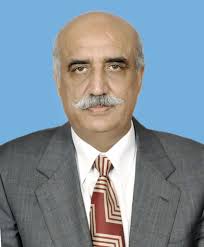On the World Thyroid Day this year, Dr. Umal Azmat, Consultant Endocrinologist from the Shaukat Khanum Memorial Cancer Hospital and Research Centres said that the prevalence of thyroid disease (hormonal and structural) is approximately 5% to 10% in Pakistan. However, a significant number of cases remain undiagnosed due to lack of awareness and unavailability of healthcare. Early detection of thyroid disorders, including thyroid cancer is possible through increased awareness and timely evaluation and testing.
The thyroid gland is a butterfly-shaped gland located at the base of the neck, anteriorly. It produces thyroid hormone that controls many vital functions of the body. Dr. Azmat said, “There are a number of different disorders related to thyroid, resulting from malfunctioning of the gland, auto-immune diseases and cancer. When the normal thyroid hormone balance is disrupted, people may show symptoms such as feeling tired, heat or cold sensitivity, weight gain or weight loss, tremors, and skin changes. Hypothyroidism (when the gland does not make sufficient thyroid hormone) and hyperthyroidism (when the gland makes excess thyroid hormone) are most common forms of thyroid disorders. Some forms of hypo/hyperthyroidism are self-limiting and do not need treatment, whereas others would require treatment”.
Discussing prevention and early detection, Dr. Azmat said, “Some risk factors such as family history and genetics which predispose individuals to thyroid disorders cannot be altered and it is important to have a high level of suspicion in this patient population so that the correct diagnosis is made, and treatment started accordingly. In some cases, especially hypothyroidism, prevention is possible through adequate iodine nutrition. Thyroid nodules are also commonly noted, predominantly in females and most of them are not cancerous, however they must always be evaluated to rule out cancer. For early detection, people can go for annual health check-ups that include blood tests to screen for thyroid disorders. The Shaukat Khanum Memorial Trust runs clinics for management of thyroid and parathyroid disorders. We treat both non-cancer and cancer related thyroid issues. In case of any unusual signs or symptoms, it is extremely important to see a physician because if left untreated, thyroid disorders can lead to significant morbidity and in some cases mortality.
Commenting on the prevailing coronavirus pandemic, Dr. Umal Azmat said that according to the European Thyroid Association, patients with thyroid cancer resistant to therapy, under treatment with tyrosine kinase inhibitors, and those receiving radioiodine treatment should be considered at a potentially increased risk of developing severe disease with Covid-19 infection. Therefore, she concluded, such patients especially, and all other patients too, should strictly follow all safety protocols. There is no evidence yet that patients with thyroid disorders should not get vaccinated, therefore she strongly encouraged everyone to get vaccinated as soon as possible. If a patient is on any immunosuppressive therapy, they should consult their respective physician for advice regarding vaccination.












